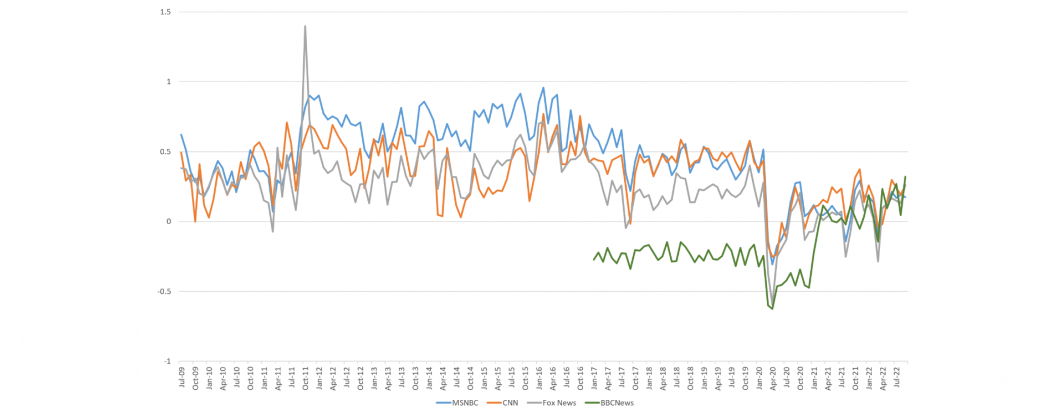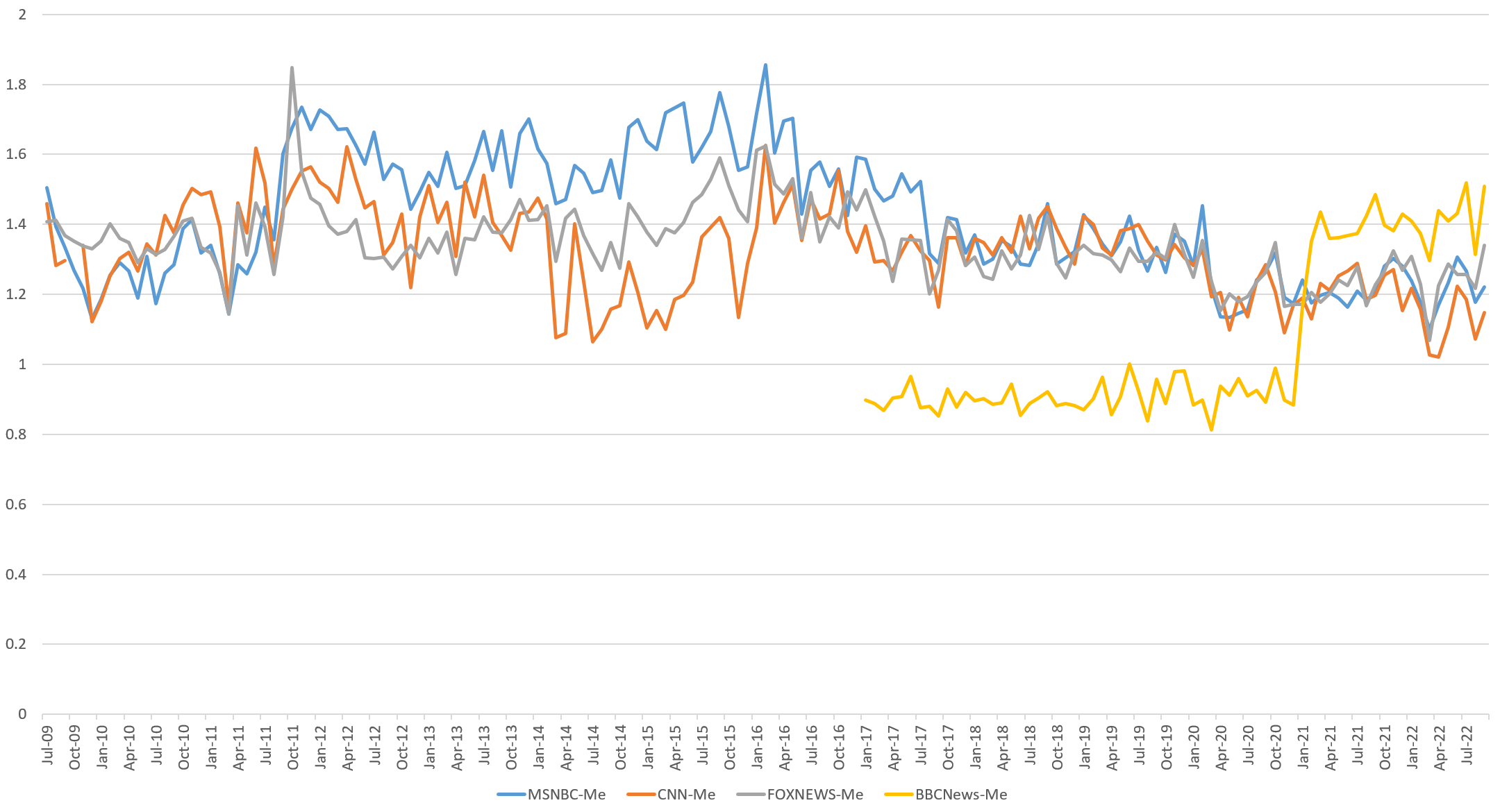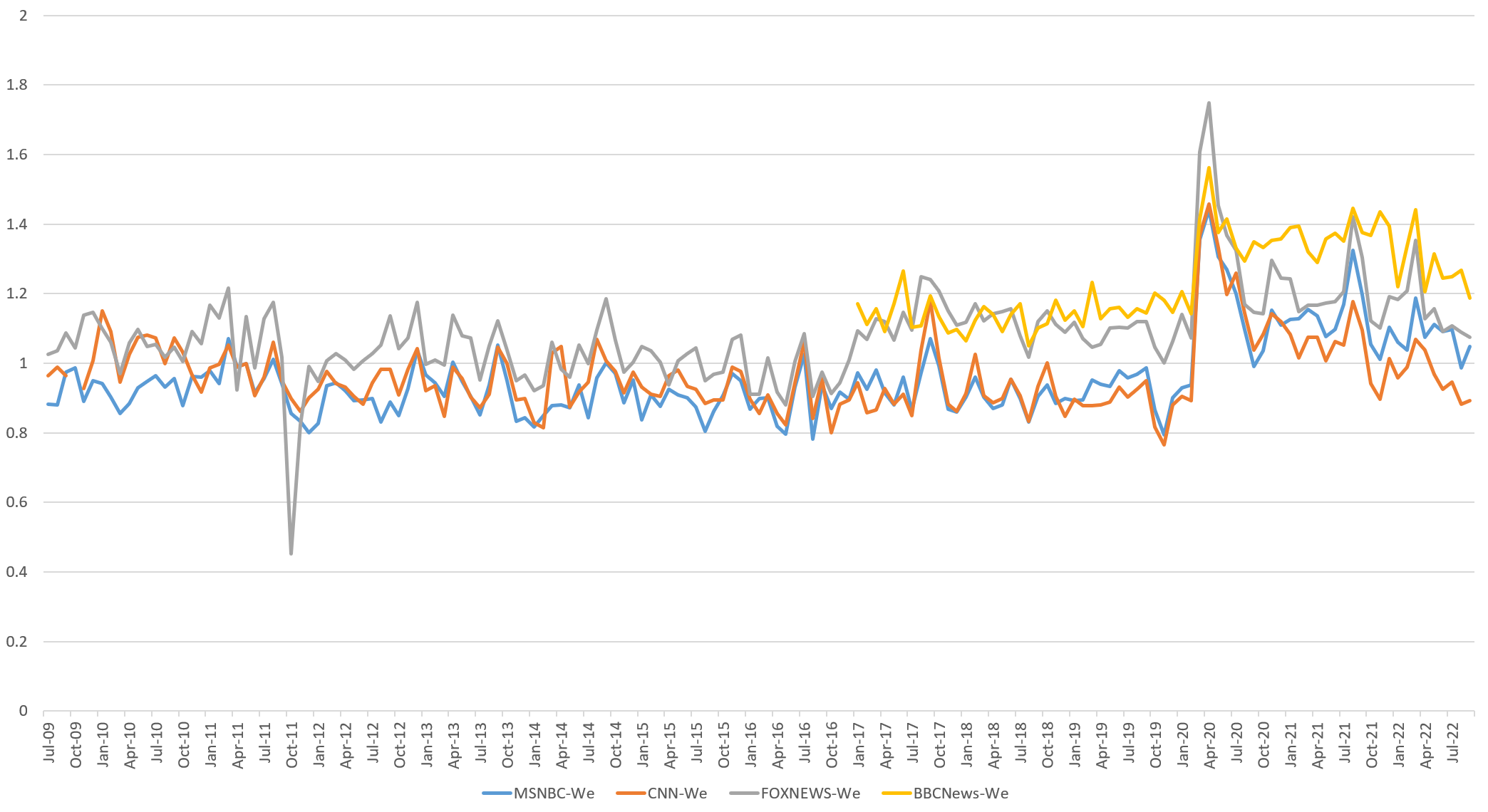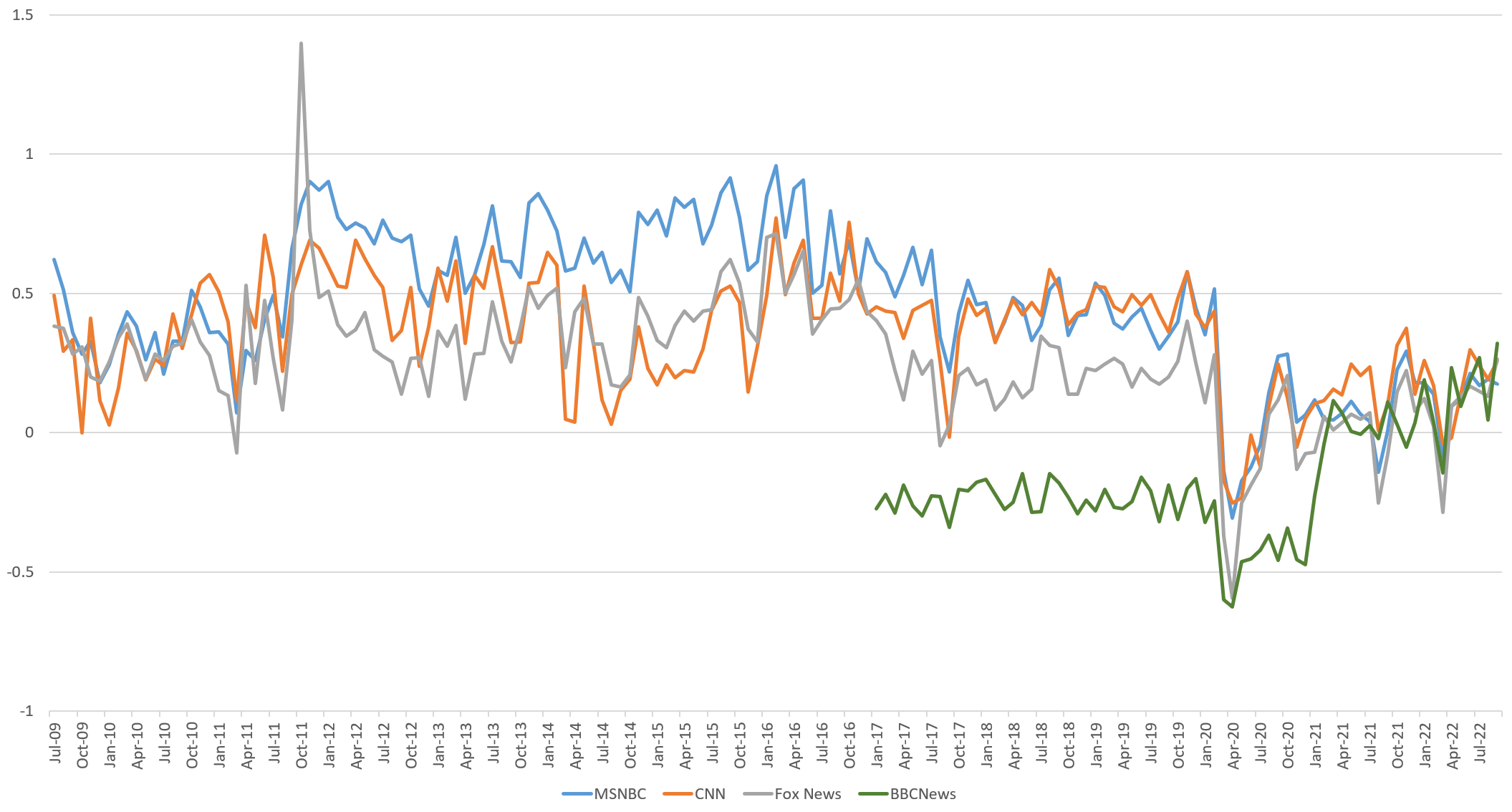
How often does television news refer to "i" and "me" (the anchor, interviewee or guest referring to themselves) versus "us" and "we" (referring to broader group membership) and has this changed over the past decade?
The timeline below shows the percentage of all spoken words across CNN, MSNBC, Fox News and BBC News London (since 2017) that were the words "i" or "me." From 2011 to mid-2016, MSNBC used "i/me" the most and CNN the least. The three channels converged in July 2016, around the time that Donald Trump's presidential campaign ramped up and fully converged around August 2017. The term collapsed across all three channels in March 2020 as the pandemic spread. BBC News previously used the term far below its American counterparts, but in January 2021 surged in its usage to the level American channels used to be and is now far above their usage.
In contrast, their use of the words "we" and "us" have been largely in lock step, with Fox News sharply increasing its usage from January 2017. All three channels surged in their mentions in April 2020 with the pandemic. BBC News has retained its pandemic-era elevated mentions while the American channels have remained elevated, but decreased slightly.
The timeline below plots "%I/ME – %US/WE" showing how much each channel favors the pronouns "i" and "me" over "us" and "we" showing how the pandemic has largely converged usage across all four channels.
To construct these graphs we used the same code as our original April 2020 example:
SELECT DATE, SUM(COUNT) TOTWORDS, SUM(GROUP1COUNT) TOTGROUP1WORDS, SUM(GROUP1COUNT) / SUM(COUNT) * 100 perc_GROUP1side, SUM(GROUP2COUNT) TOTGROUP2WORDS, SUM(GROUP2COUNT) / SUM(COUNT) * 100 perc_GROUP2side FROM ( SELECT SUBSTR(CAST(DATE AS STRING), 0, 6) DATE, WORD, 0 COUNT, COUNT GROUP1COUNT, 0 GROUP2COUNT FROM `gdelt-bq.gdeltv2.iatv_1grams` WHERE STATION='MSNBC' and WORD in ( SELECT * FROM UNNEST (["i", "me"]) AS WORD ) UNION ALL SELECT SUBSTR(CAST(DATE AS STRING), 0, 6) DATE, WORD, 0 COUNT, 0 GROUP1COUNT, COUNT GROUP2COUNT FROM `gdelt-bq.gdeltv2.iatv_1grams` WHERE STATION='MSNBC' and WORD in ( SELECT * FROM UNNEST (["we", "us"]) AS WORD ) UNION ALL SELECT SUBSTR(CAST(DATE AS STRING), 0, 6) DATE, WORD, COUNT, 0 GROUP1COUNT, 0 GROUP2COUNT FROM `gdelt-bq.gdeltv2.iatv_1grams` WHERE STATION='MSNBC' ) group by DATE order by DATE asc


